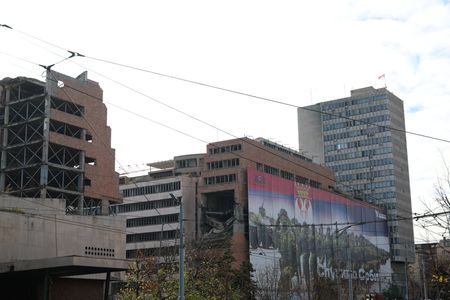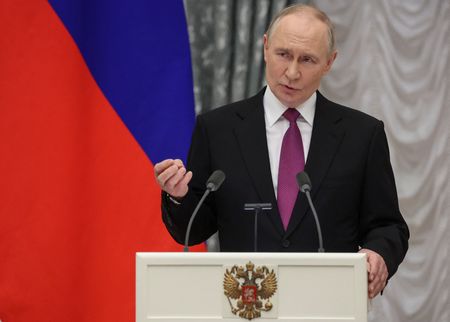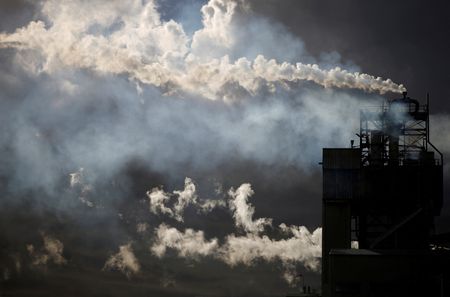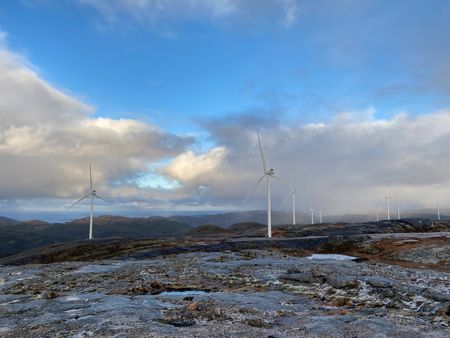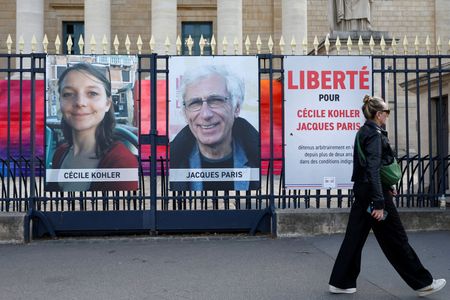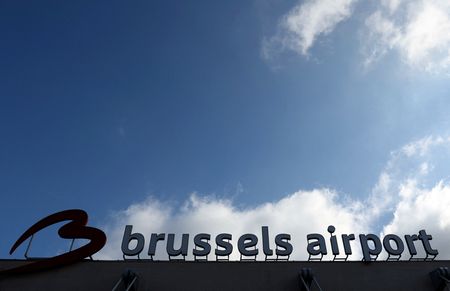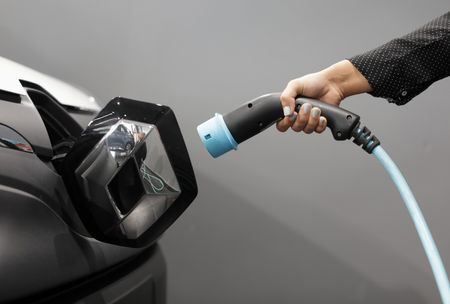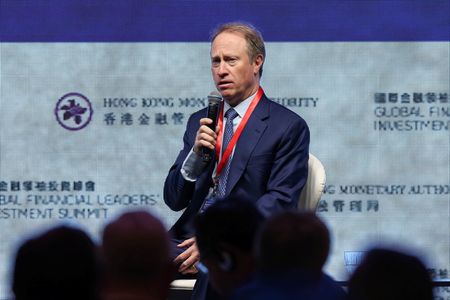By Ivana Sekularac
BELGRADE (Reuters) -Serbia’s parliament began to debate on Tuesday a plan that would fast-track the development of a luxury compound in Belgrade proposed by the investment company of U.S. President Donald Trump’s son-in-law Jared Kushner.
The Serbian authorities and Kushner’s U.S.-based Affinity Global Development signed a 99-year lease deal in May 2024 allowing the company to overhaul two buildings which once housed the headquarters of the Yugoslav People’s Army.
The project, which would include a hotel, apartments, shops and office spaces, triggered widespread protests among many who see the old headquarters, which were damaged in a 1999 NATO bombing campaign, as a culturally significant tribute to those who died and a monument to Yugoslav-era modernist architecture.
Still, the Serbian government has pushed ahead. In November 2024, it stripped the buildings of their protected cultural heritage label and this week, once the debate on the draft law is over, it will vote on whether to speed up procedures for obtaining construction licences.
Lawyers said it was rare for such a specific project to receive this kind of parliamentary attention.
Savo Manojlovic, a legal expert and leader of the opposition Kreni Promeni party, said the draft law “suspends all standards concerning the protection of cultural property”. He said he would ask Serbia’s Constitutional Court whether the bill was constitutional.
Kushner, who is married to Trump’s daughter Ivanka, set up Affinity Global Development after stepping down from his job as a White House aide in 2021. The investment firm did not immediately respond to a request for comment.
Serbia’s ruling party has said Kushner’s project is of vital interest but has not said why.
In an interview on local television, President Aleksandar Vucic said he had demanded that a monument to victims of the NATO bombing be built, adding: “And now they (Affinity Global Development) are building it with their money.”
The vote comes at a turbulent time in Serbia.
Vucic has faced a year of large-scale protests triggered by the collapse of a station roof in November 2024 that killed 16 people. Meanwhile, Serbia’s sole, Russian-owned oil refinery is under U.S. sanctions, raising concerns about fuel supplies in the Balkan country this winter.
(Reporting by Ivana SekularacEditing by Edward McAllister and Gareth Jones)

